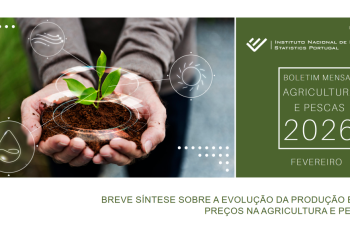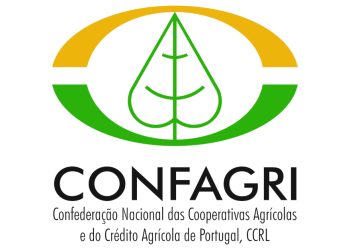Brussels, February 20th.
As a continuation of a previous discussion (January 29th) on the future of Europe’s post-2020 agricultural policy among the European Agriculture Ministers, the Agriculture and Fisheries Council (AGRIFISH) chaired by Bulgarian Minister for Agriculture, Food and Forestry Mr. Porodzanov, was held yesterday, February 19th 2018 in Brussels. It represented a second thematic exchange of views among EU Ministers specifically focusing on: (i) direct payments, (ii) environmental measures and (iii) rural development.
During the previous exchange, Ministers addressed the importance of the CAP’s added value, the key objectives at EU level to be maintained and further enhanced and the appropriate level of subsidiarity for the implementation of the policy, being cautious on the New delivery model as long as only very few concrete details are available at the moment.
It is relevant at this point to take stock and reflect on these on-going discussions, since the Presidency aims to strike Conclusions on the EC Communication on the “Future of Food & Farming” at the next meeting, which is planned to be on March 19th.
Let’s start from the initial exchanges and proceed then with the latest one.
On January 29th, in the occasion of the first debate on the subject, Ministers overall agreed on the CAP’s added value for (i) the competitiveness of the agricultural sector, (ii) the viability of rural areas, (iii) the functioning of the EU Single Market and (iv) the sustainability of the agricultural production among the others.
The “greater subsidiarity” aspect of the Commission’s proposal for the future Common Agricultural Policy (CAP) after 2020 was generally welcomed. Ministers emphasized the importance of “more flexibility in the implementation measures” with MS able to tailor specific measures according to national specificities.
However, a vast majority pointed out that the objectives should be set at EU level and the right level of subsidiarity should be established. Furthermore, they demanded more clarity on the “New Delivery Model” implementation.
Many Ministers asked for maximum transparency and especially guidance on practicalities and division of responsibilities between the EU and MS.
“How can we ensure the proper functioning of this new Mechanism?”
“How can we be ensured that the Common character of the CAP is not undermined?”
“How can we ensure the achievements of CAP objectives?”
“How can you (EC) ensure that the New Delivery Mechanism does not create additional administrative burden for farmers and national/regional authorities?”
These were among the biggest question marks that EU Agriculture Ministers addressed to the European Commission during the January 29th exchange of views. It is not by chance that the word “ensure” is underlined, but in the conclusion of this post everything will be made clearer to the reader.
In between the two thematic exchanges on the future of the CAP (AGRIFISH meetings), it is necessary to mention the Special Committee on Agriculture’s (SCA) meeting on February 5th, during which Member States had the possibility to discuss on the Commission’s Communication in much more detail.
Specifically, on Direct Payments, Member States came to a general agreement on: (i) DP’s fundamental role in providing farmers ‘income stability’, (ii) their capacity to ensure a fair standard of living, considering the still existing income gap with other economic sectors, and (iii) the “safety-net” role against the risks of price volatility and extreme climatic conditions.
On Direct Payments’ role, yesterday’s exchange, emphasized again the main outcomes of the SCA:
- a) “Member States recognized the importance of direct payments being fairly distributed. Mechanisms such as redistributive and degressive payments as well as capping were backed by a considerable number of delegations, many of which pleaded for the choice to be left to Member States”.
- b) “Some delegations also considered the principle of equality between Member States in the distribution of direct payments as an important element of fairness”.
In addition to this, a fear that many Ministers expressed, was the necessity to separate measures under Pillar I and II with the New Delivery Model proposed by the European Commission to keep clarity between the different tools of the CAP.
While, on Voluntary Coupled Support, a topic which was raised by many Member States, there seemed to be an agreement on the effectiveness of such measure in particular on agriculture most sensitive sectors. Ministers asked for greater flexibility in the implementation of VCS, in order to be better prepared to pressure on competitiveness – i.e. on open markets & FTAs (some MS argued).
On Environmental aspects, the main concepts that emerged from the discussion and that were backed by many Ministers during the exchange were as follow:
– “Environmental objectives should be set out at EU level”
– “Farmers should be adequately rewarded for the provisions of public goods”
– “MS & Regions should be given flexibility when designing specific measures”
– “A better coordination and complementarity between Pillar I and Pillar II measures for environmental and climate action should be ensured and duplication avoided”
At this point, it seems necessary to summarize the Commission’s explanation on the “new Greening architecture” and its “enhanced conditionality”, since some MS, both at this last meeting and in the occasion of the SCA, made specific points on the structure of the new conditionality and specifically the importance of maintaining coherence by building it on the current one, thus limiting further technicalities.
Structure of the “new greening architecture” as proposed/presented by the EC (see Council’s Document 6066/18 for more details):
– “an enhanced conditionality, mandatory for farmers, and a voluntary mix of interventions funded under pillar II (climate/environmental schemes) and, if chosen by Member States, also under pillar I (eco- schemes).
– “current cross-compliance (SMRs – Statutory Management Requirements and GAEC – Good Agricultural and Environmental Conditions) and greening requirements, will be merged into one single system, incorporating SMRs and a set of GAEC-type standards. These standards would be developed by Member States into appropriate requirements for their farmers to respect (as in the current GAEC), taking account of national specific conditions as well as, for example benefits resulting from requirements for other sectors and possibly lightening the ones their farming sector would have to implement. Respect of the new conditionality would be a condition for farmers to receive pillar I support, and it would serve as the baseline for more ambitious environmental schemes, such as agri-environment-climate measures (AECM)”.
Last but not least, delegations were also asked for their views on “how should the rural development policy be further modernized and simplified to contribute to more sustainable rural economies and jobs and growth in rural areas?”
What the European Commission specified, when explaining and clarifying the features of the new “delivery model” concerning Rural Development, is that “Member States will have more flexibility in setting objectives and targets on the basis of their local needs, tailoring the CAP interventions on the basis of broad types of interventions set at EU level, and establishing compliance frameworks for beneficiaries”.
Ministers, for their part, underlined the need to maintain and further enhancing the viability and prosperity of rural areas, with a special focus on: generational renewal and job opportunities. An issue raised by some of them, was the necessity to “make RDP programming much simpler”. They also stressed the need to ensure coherence with other EU policies and asked for more flexibility in the design of specific measures.
In conclusion to this overview on the current discussions and exchange of views on “the Future of Food and Farming” proposed by the EU Commission with its Communication, what has to be also stressed is the need:
– to build an effective and pragmatic approach with a CAP, which should remain a fully common EU policy;
– to offer enough concrete flexibilities to make CAP simpler and more efficient at national and regional level.
In other words, Member States do not only need “reassurance” but a clear guidance on the discussion on how to build a shared common vision for the future of the EU agri-food sector, in order to meet current most pressing challenges, respond to societal expectations, and thrive.





















































Discussão sobre este post